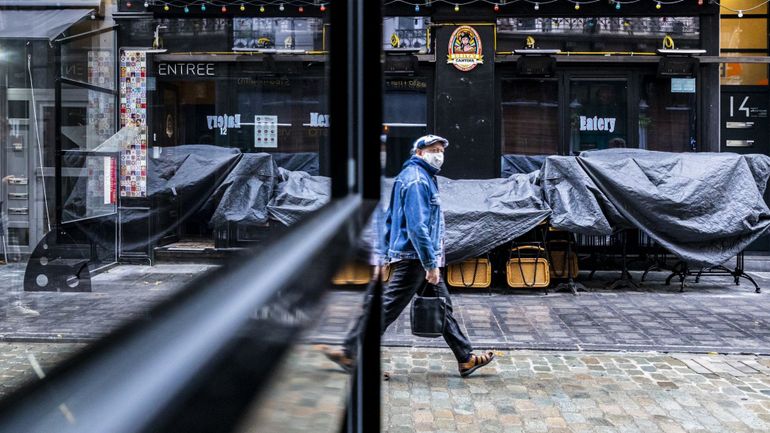Restaurants across the country are closed at the moment as a protection against the spread of Covid-19. Some, it is feared, may never re-open.
But those that are able to open again face another threat: the growth of teleworking.
At present, teleworking is obligatory for businesses unless considered impossible, and most forecasts predict it will remain common even after the worst of the crisis is over.
Telecoms giant Proximus, for example, is considering moving out of its landmark twin towers by the Brussels North station because it has too much space for the future working landscape.
According to Olivier Willockx, CEO of the Brussels entrepreneurs’ organisation Beci, teleworking is here to stay, at least in one of its forms.
“Teleworking is becoming a permanent fixture in most companies, at least for one to two days a week,” he said in an interview with Bruzz. “Perhaps not more than that, because many employees indicate that they need social contact.”
Companies, he explained, are not all eager to embrace the new way of working. Meetings on Zoom or Skype have become commonplace, but can never be a full replacement for bottoms on office chairs.
“At those meetings you miss out on some information. For example, you cannot see whether one of your employees is depressed,” he said.
“In addition, everything that normally happens before and after a meeting falls away. In a country such as the Netherlands, most decisions are taken during the meeting itself. In Belgium it’s different, especially among French speakers. That hidden dimension is not there now.”
But the growth of teleworking, however large or small, represents a threat to the restaurant sector, already reeling from two full lockdowns.
“There are many restaurants with a clientele that mainly consists of people who come to work locally,” said Philippe Trine, president of sector federation Horeca Brussels. “If offices become obsolete and close, that is of course a bad thing for those restaurants.”
He doubts whether teleworking will endure.
“I find it difficult to say, because our sector no longer works at all, but being present in the office has many advantages for many companies,” he said.
One of the biggest names in Brussels horeca, Frédéric Nicolay (Belga, Roi des Belges, Walvis, Vismet) is of the same opinion, he told Bruzz.
“Telework is a fine idea, but no more than that,” he said. “People like to come together and share with each other. We are not machines.”
And many of the most vulnerable establishments were on shaky foundations before the virus came along.
“There are probably too many establishments,” said Nicolay. “A lot of them were already doing badly financially. Sooner or later they would have disappeared anyway.”
For Philippe Trine and most of his members, that would be no bad thing.
“There will then be 3,000 restaurants left. Because some restaurants will have disappeared, there should be more work for the rest. And there will certainly not be too many for a city like Brussels.”
Alan Hope
The Brussels Times

